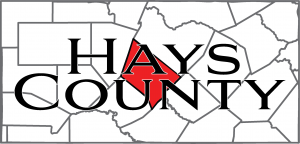HAYS COUNTY – The Hays County Mental Health Court (MHC) has been working to offer an alternative to incarceration for individuals who otherwise may not receive the help they need.
Created in 2022, the MHC is a 12-month, three-phased specialized treatment court designed to address the unique needs of individuals with mental health, substance use and Intellectual/Developmental Disability (IDD) disorders who are also facing pending legal charges. MHC provides a structured link between treatment, rehabilitation, social support services and the criminal justice system to promote self-sufficiency, accountability, holistic wellness, empowerment and successful recovery.
“The goal of the Mental Health Court is primarily to get individuals out of jail, who otherwise would be in jail for minor offenses; oftentimes, we get them into treatment programs, so that they can successfully reintegrate back into society,” said County Court-at-Law No. 3 Judge Elaine Brown, whose court oversees the MHC.
When an individual is admitted into the court, the expectations are to attend the court hearings— which occur twice a month strictly with MHC on the docket in order to protect confidentiality and privacy — and to engage in all treatment appointments.
“That includes with their therapist, psychiatrist and case manager. And the frequency of meeting with the case manager and the counselor is really dependent on their symptoms and their treatment needs. It’s on an individualized basis, based on their own needs,” said MHC Administrator Kaimi Mattila. “Throughout the time in the program, they are expected to keep up with all of those appointments and engage with those providers, come to the court hearings and sometimes we do have events.”
Mattila said that the participants are also expected to attend the commencement ceremonies to show support and maintain a community feeling of inclusion. The court had its most recent ceremony in December 2023 and is expected to have two more for the upcoming spring and fall graduates.
Defendants may be eligible for the MHC if they have an active misdemeanor case and are diagnosed with a mental health, substance use or IDD disorders.
Other criteria for participants are listed below.
• Hays County resident (case-by-case basis if out of county)
• 17 years of age or older
• Diagnosed with a mental health disorder such as Schizophrenia, Schizoaffective Disorder, Major Depressive Disorder, Generalized Anxiety Disorder and Post Traumatic Stress Disorder. Substance use disorders and intellectual and developmental disabilities are also diagnoses that are considered for MHC.
• Misdemeanor offense(s)
• Link between the mental health/substance use/IDD disorder and the current offense
• Assaultive offenses will be considered on a case-by-case basis
• No past or current charge of a sex offense
• No substantial history of violent offenses
• Competent
• Pre- or Post-Adjudication
“I would say [a good candidate is] an individual who is open and willing to engage in services recommended by clinicians to help them reach their goals. Whether that means employment, going back to school, finding housing [or] getting into therapy. All of those are goals that we can work on with them,” Mattila said. “The goals that they work on in the program are theirs and we support them with those things, in addition to addressing the mental health and wellness piece of it.”
One of the important requirements for individuals in the MHC is competency and being able to fully understand what they are participating in, Judge Brown explained.
“In order to enter into the Mental Health Court, they must be able to understand all of the obligations or requirements that they’re going to have,” she said. “They have to have good insight, in other words, into what’s going on with them [and] what kind of treatment plan they’re going to be expected to follow. It is very important that they be committed to the program.”
The court is currently structured for individuals who have misdemeanors only. If an individual has a combination of a felony and misdemeanor, their attorney would need to advocate and see if the prosecutors would be open to that discussion about getting them into the MHC, according to Mattila.
“It’s not necessarily ruled out, but there are additional steps that have to be taken before we can really start that referral process,” Mattila said.
The first step for MHC participants is the referral process. The court accepts referrals from all sources, including judges, defense attorneys, probation officers, the jail, treatment providers or family members.
“I think it’s important that everyone understand that the Mental Health Court right now, as it exists, is for individuals who are involved with the criminal justice system. So, there is a process for entry into the court. I think that it’s important to understand that just because they make a referral does not mean that person will necessarily be accepted into the program because there’s a process that has to go through. We have a team that involves the prosecutors, defense lawyers, therapist, myself, [Matilla and] other staff members. The referral process doesn’t guarantee entry into the court, it’s just the first step.”
Contracts and partnerships
The MHC has contracts set up with various service providers. While there is the mental health portion, Mattila said that the court has other community partners providing employment services, transitional housing and sober living to help supplement the services and resources that individuals need.
The most recent contract the court has gained is with Evoke Wellness, following approval by the Hays County Commissioners Court on Jan. 2, to provide substance use treatment services for individuals participating in the MHC.
“We’re excited to enter into this contract with Evoke Wellness, which will ensure that all participants in the Mental Health Court who are in need of substance use treatment can access it in a timely and efficient manner,” said Mattila.
Evoke Wellness is an addiction treatment and mental health center that is designed to be a safe, supportive environment where patients struggling with addiction are treated with respect and dignity. Through the contract with the county, Evoke will provide MHC participants with residential, detox and intensive outpatient substance-use services.
The center will provide scholarships to five individuals per year for those without insurance, free of cost to the individual and the county. MHC staff will complete a financial assessment to assess if a participant has insurance and/or the ability to pay, according to the contract. If the participant has insurance accepted by Evoke, the participant will be required to use that insurance to cover the cost.
However, if the participant does not have insurance, has insurance and can’t pay the copay or does not have the ability to pay out-of-pocket for treatment, the county will provide the financial support through a $45,000 allotment in American Rescue Act Plan grant funds to cover the copay or the full cost of treatment.
“I think it’s money well spent and I know the court agrees. I’d rather see money go to Evoke than to outsourcing of our neighbors because … there is a high possibility that someone could have a substance abuse problem and end up in our jail and you can prevent that whole thing,” said Hays County Judge Ruben Becerra. “Just the thought of that is very awesome because the things you are dealing with, whether it be mental, medical, pharmaceutical, whatever the case may be, however you want to describe it, to address it in a way that is problem-solving [and] results-oriented is so wonderful for our community as a whole.”
Commissioner Debbie Ingalsbe said that she is excited about this contract and being able to offer the continuous care that participants need.
“We can have good representation and other things that are needed, but if you don’t have the resources and the programs to help these individuals to really get the treatment that they need, then a lot of times, we miss the ball on that,” she said.
Looking at the results of individuals using the substance-use services through Evoke and the MHC is something that commissioner Lon Shell is interested in. The issue hits close to home for Shell, as he has had family members struggle with alcohol abuse, and he encouraged the county to look at helping individuals get treatment throughout the entire community.
“I am interested in this to see those that come through the Mental Health Court that are put into this type of program how successful it is. Are they able to complete it and then have a way to look back at them in the future and see, are they still being successful? I think that would be a great deal of interest because I think that could lead us and others with a right direction on how to address the issue and try to find out how that would be fairly funded,” he said.
“Knowing how many people are out there right now, as we speak, dealing with this, I don’t want it to be where someone has to commit a misdemeanor to be able to get the treatment for it either,” Shell continued. “I think it has to be fair … I just want us to be cautious [and] that we are understanding that there are many within our community right now suffering that don’t have insurance or don’t have a way to fund something like this because it is very expensive.”
Looking to the future
Since its establishment in 2022, the MHC has become a robust program with contracts, partnerships, resources and an increased caseload. The court currently has 20 participants, with four who graduated in December. While the capacity is 25, Mattila and Judge Brown said that there is a possibility the caseload could expand, but there would be additional staff required.
“We would need additional staff to expand the program. One of the things that has become apparent to me is that, in order to make sure that we are providing each individual in the program with what they need to be successful, we have to keep the group small enough to be able to do that. We just don’t have sufficient staff now to expand it much more than 25 participants at a time,” Judge Brown said. “However, it is a rolling group … We have graduates so that means we can take in more people to fill those slots that have now been opened up due to their graduation.”
The duo has seen how the court has impacted not only those who have participated in the program, but also the community as a whole.
“At our last commencement ceremony, some of the graduates spoke about how profound it was to be in this program and it really changed the trajectory of their lives. I think that speaks to what this program can do for people and has done so far in getting them to a place of stability, where they can continue their life, kind of put this chapter behind them and take the tools and resources and what they’ve learned about themselves and move forward in a really positive way,” Mattila said.
In agreement, Judge Brown said that she has seen people come into the program motivated to get the resources that they need to reintegrate into society.
“Their families are motivated to help them,” she said. “And I think they’re really appreciative of the fact that the community is backing them [and] helping to provide them with an alternative to sitting in jail and not getting any better. It benefits the community, as well, because these individuals will oftentimes be able to return to their homes, jobs, be able to support their families [and] be a productive member of society, which they want to be and which benefits the community as well.”
This year, and further in the future, Mattila and Judge Brown want to be able to continue providing more resources for the MHC participants. And, while there is no concrete planning at this time, there is discussion of possibly expanding their work to juveniles.
To learn more about the MHC, visit www.hayscountytx.com/courts/hays-county-mental-health-court. Any questions can be directed to Mattila by calling or texting 512-757-0795 or emailing kaimi.mattila@co.hays.tx.us.















